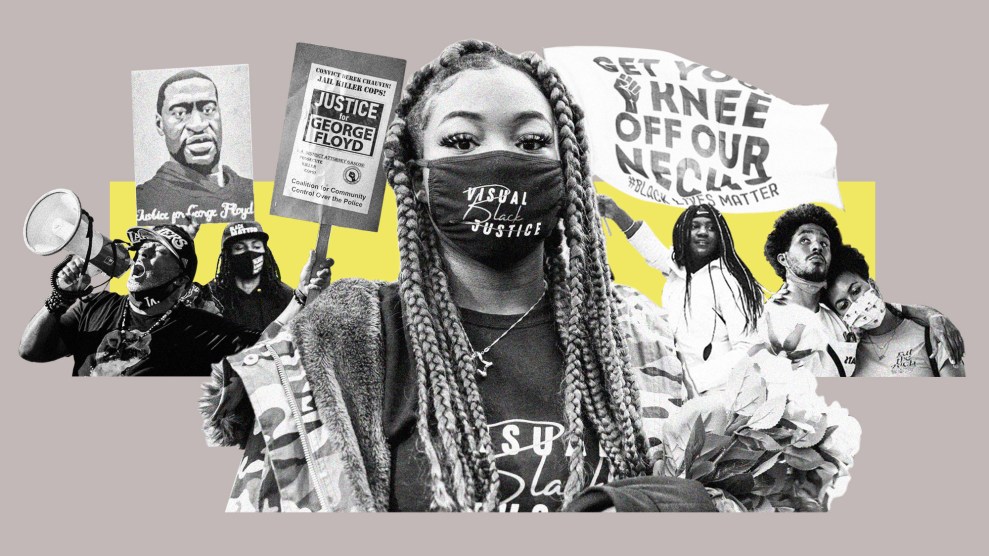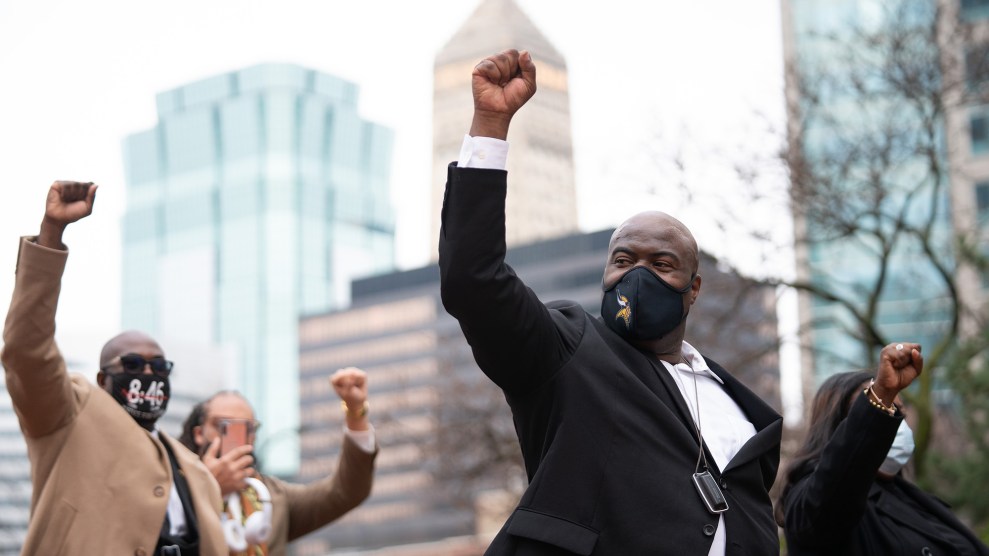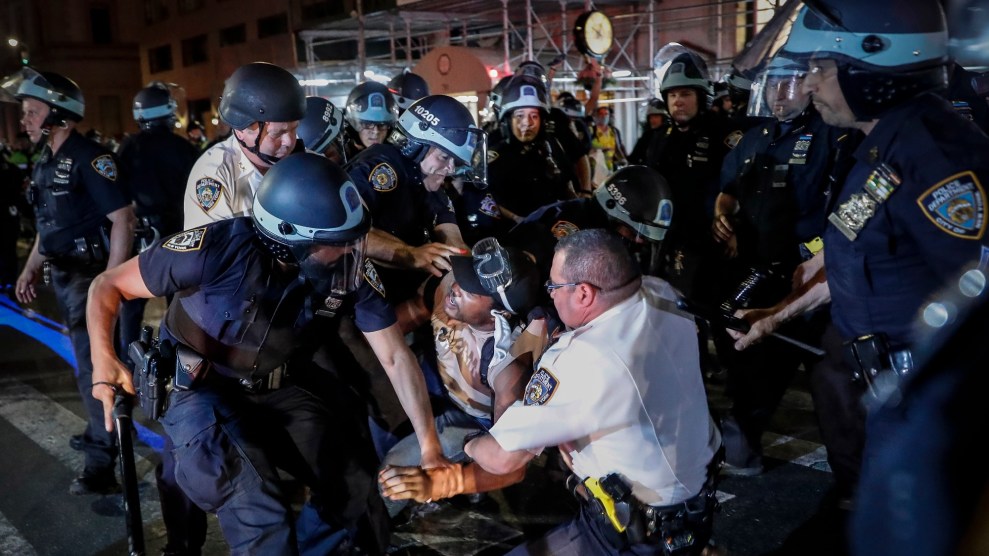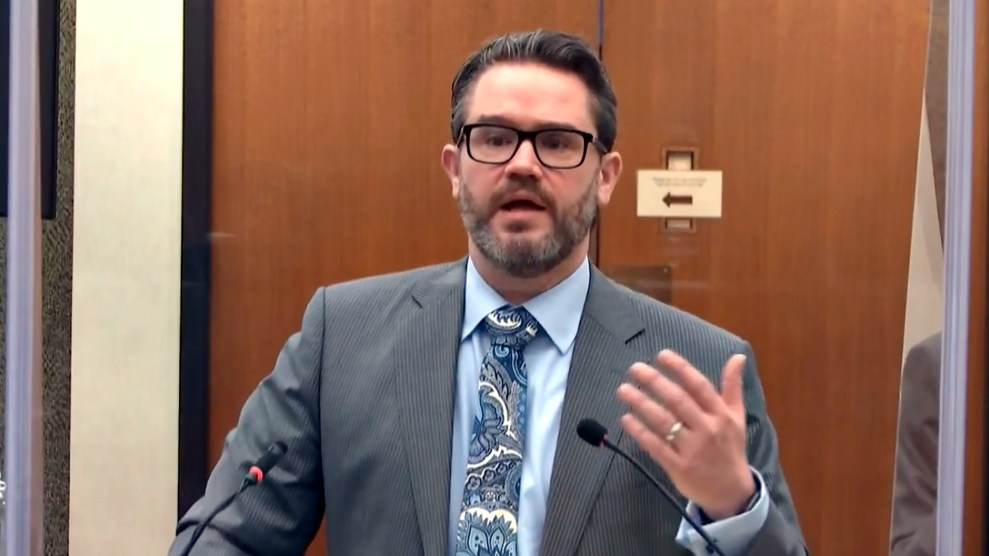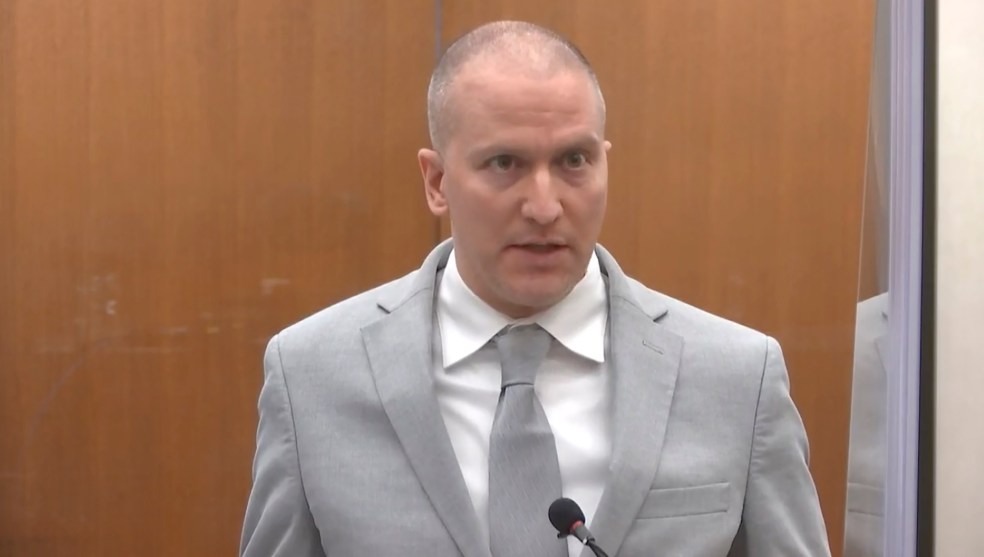
Court TV/AP/Pool
A Minneapolis judge on Friday sentenced former police officer Derek Chauvin to 270 months, or 22.5 years, in prison for murdering George Floyd.
In Minnesota, the maximum sentence for unintentional second-degree murder—Chauvin’s most serious crime—is 40 years, but the recommended sentence for people with no prior criminal record is 12.5 years. Judge Peter Cahill said on Friday that he added 10 years to the presumptive sentence “based on your abuse of a position of trust and authority, and also the particular cruelty shown to George Floyd.”
“What the sentence is not based on is emotion or sympathy,” Cahill said when he announced the sentence. “At the same time, I want to acknowledge the deep and tremendous pain that all the families are feeling, especially the Floyd family.”
Floyd’s 7-year-old daughter, Gianna, and two brothers, Terrence and Philonise, gave victim impact statements before the sentence was announced. Gianna recalled playing with her dad and having him help brush her teeth before bed. Asked what she would say to her dad if she could see him, she said, “It would be I miss you and I love you.”
At his sentencing hearing for the murder of George Floyd, former police officer Derek Chauvin was faced with the heartbreaking testimony from Floyd’s 7-year-old daughter.
Asked what she would say to her dad if she could see him, she said, “It would be I miss you and I love you.” pic.twitter.com/h0urugox09
— Mother Jones (@MotherJones) June 25, 2021
In April, lead prosecutor Keith Ellison filed a motion for Chauvin’s sentence to be increased beyond the state’s guidelines. A district judge agreed with Ellison’s motion, noting the “particular cruelty” Chauvin displayed as he knelt on Floyd’s neck for more than nine minutes. Shortly before the sentencing, the judge denied a motion from Chauvin’s attorney for a new trial.
When the jury delivered its guilty verdict in April, Chauvin became the second Minnesota police officer ever convicted of murder. The first conviction was Mohamed Noor, a Black officer responsible for the murder of Justine Damond. He was sentenced to 12.5 years.
Chauvin’s sentencing may be a milestone in the movement for police accountability, but, as my colleague Nathalie Baptiste wrote while the trial was ongoing, the racist policing system in the United States “will not be undone by the trial of one violent man in uniform.”
Instead of ushering in the end of police killings, the trial displayed some of the enduring myths used to justify police violence. The idea that the police are inherently law-abiding, of good character, and necessary, for example, or the notion that Black people are stronger and more aggressive than their white counterparts and therefore warrant police restraint, were two arguments from the defense. But the trial also showed that those myths can be upended. “A jury decided that he wasn’t [just doing his job],” Nathalie writes, “and that verdict challenged the most dangerous and pervasive myth in America: White violence can usually be justified, especially when the perpetrator happens to be wearing a uniform.”

